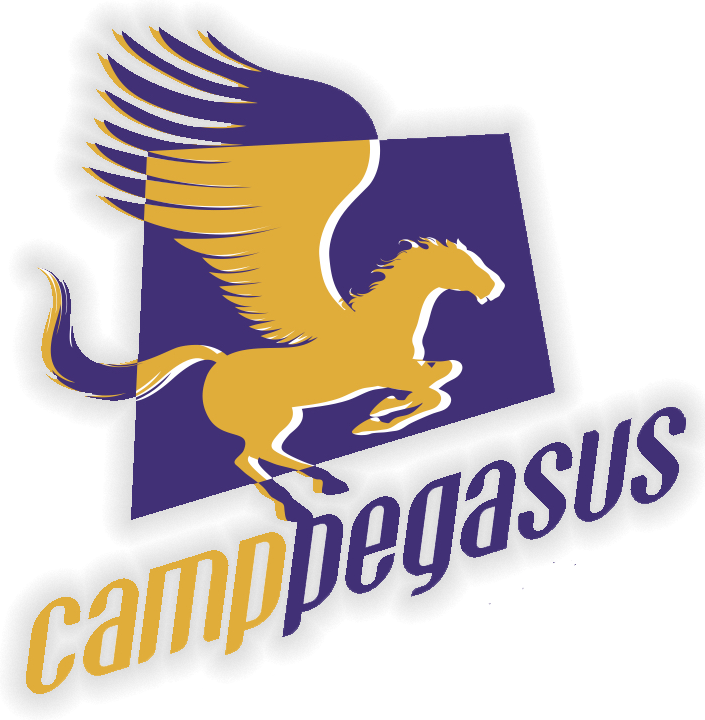We're Evidence Based!
Two Outcome Studies of Camp Pegasus Provide Growing Evidence that the Program is Effective *
How was this discovered? Two Outcome Studies
Two different Widener University psychology doctoral dissertations studied the efficacy of the Camp Pegasus program, Rebecca Brodoff, PhD, conducted an outcome study examining social skill improvement among Camp Pegasus participants. That 2017 dissertation is entitled, “Examining the Effectiveness of a Summer Camp for Improving the Social Skills and Self-Regulation Behaviors in Children with Autism Spectrum Disorder”.
In 2019 Kate N. Terrell, PhD reported findings from her study of campers' improvement in executive functioning in, “Evaluating a Social Skills Intervention’s Impact on Executive Functioning Among Children with Autism Spectrum Disorder and Social Skills Deficits.”
The 2017 Brodoff Social Skills Study
Brodoff studied “expected behaviors” (defined by Michelle Garcia-Winner as pro-social behaviors and skills) and “unexpected behaviors” (defined as maladaptive or undesired social behaviors). The hypothesis was that campers would demonstrate less “unexpected behaviors” and more “expected behaviors” at the end of the summer program, as rated by counselors and parents.
The study rated “expected” and “unexpected” behaviors in 11 campers diagnosed with Autism Spectrum Disorder who attended the program for all 8 weeks. Behaviors were rated in three intervals: prior to the start of camp, at the midpoint of the program (after 4 weeks), and at the conclusion of camp (after 8 weeks).
Brodoff used the same behavior rating scale used by Michele Garcia-Winner, the SRS-2 in addition to Direct Behavior Observation.
The study used three different types of raters to get a broad perspective of campers’ behavior, parent ratings, counselor ratings, and direct behavior observation ratings by the researcher and a second rater. Brodoff stated the need to repeat this study using similar and different data collection methods and measures to strengthen reliability and validity.
We get results!
A meaningful decrease in “unexpected behaviors” occurred by the end of the 8 week program.
Campers who were rated as demonstrating greater social deficits at the beginning of camp made the most dramatic progress after the conclusion of the 8 weeks.
Parents’ ratings demonstrating improvement on the home front suggests that social skills learned and practiced at camp generalized to the home setting.
The 2019 Terrell Executive Functions Study
This study hypothesized that participants of Camp Pegasus would experience improvements in both executive functions and social skills. Rating scale measures of executive functioning (the Comprehensive Executive Functioning Inventory) and social skills (the Social Responsiveness Scale-2nd Edition) were completed by guardians and counselors at the beginning of camp, and again at the end of the child’s camp experience.
Overall, this study provides evidence that this camp-based intervention for children and adolescents with ASD or social skills deficits is associated with improvement in both executive functioning and social skills. While guardians and counselors saw improvements in different areas, The overall amount of improvement following the intervention did not differ between raters. This suggests that both guardians and counselors reported positive growth. In the future, it would be helpful to determine if these improvements remain over time; for example, it would be interesting to see if teacher ratings also showed a similar level of functioning once students returned to school. In addition, if a larger group of campers could be studied, it could help us look at any differences by age that would be important to know.
We get results!
Significant improvement in executive functioning based on ratings from both counselors and guardians, with guardian ratings indicating improvement over a broad range of executive functioning skills (Emotion Regulation, Initiation, Organization, Self-Monitoring, and Working Memory scales of the CEFI)
Significant improvement in social skills, with counselors reporting the highest degree of positive change (Social Awareness, Social Cognition, and Social Motivation of the SRS-2)
Additional analyses found significant relationships between overall change in social skills and specific areas of executive functioning
For both guardians and counselors, Emotion Regulation, Flexibility, Inhibitory Control, Planning, and Working Memory were found to be correlated with overall improvement in social behaviors
Dissertation Citations
Brodoff, R. (2017) Examining the Effectiveness of a Summer Camp for Improving the Social Skills and Self-Regulation Behaviors in Children with Autism Spectrum Disorder (Doctoral Dissertation). Retrieved from Proquest. (Accession No. 10286756)
Terrell, Kate N. (2019) Evaluating a Social Skills Intervention’s Impact on Executive Functioning Among Children with Autism Spectrum Disorder and Social Skills Deficits (Doctoral Dissertation) Retrieved from Proquest (Accession No. 13896410)



